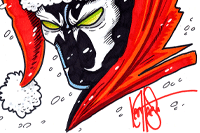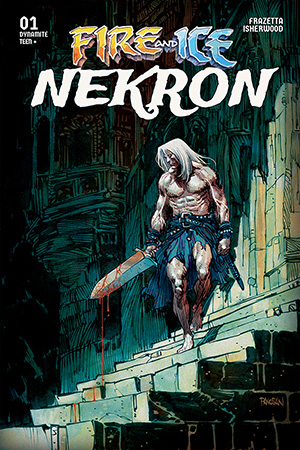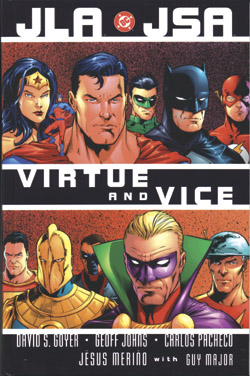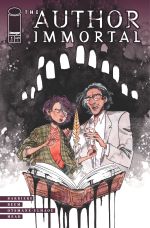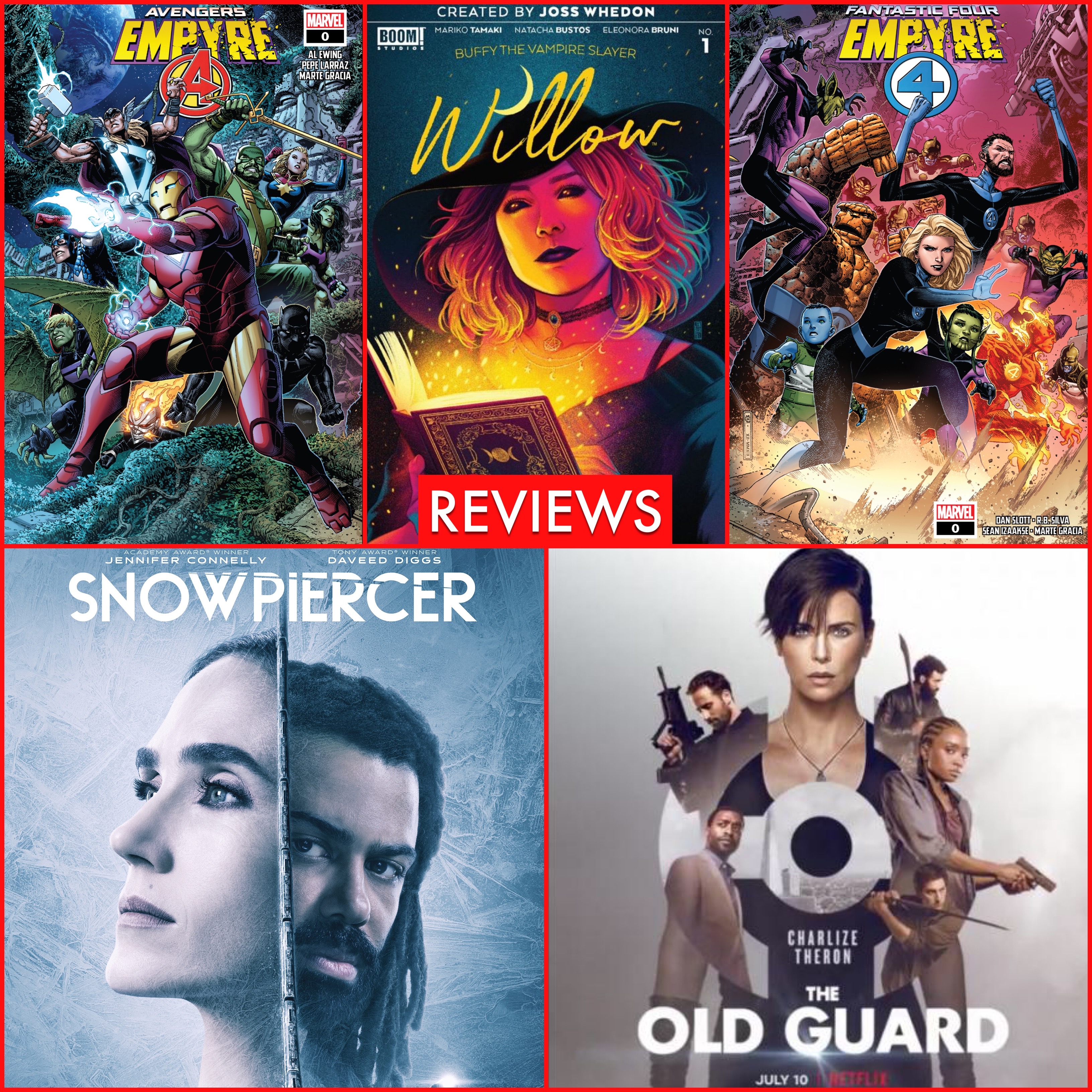|
 |
WAITING
FOR TOMMY: GEOFF JOHNS
By Richard
Johnston
Geoff Johns came into our lives when we weren't looking.
No, really, our backs were turned, we were all off looking
at Neil Gaiman or something, and in he snuck. Started getting
itty-bitty writing assignments, a superhero icon here, another
there, and before we knew it he was running the show. He's
leapfrogged over his immediate peers, and has carved out a
rather attractive looking space for himself in the industry.
He's the clean, healthy face of modern superhero comics. Ant
Man massages aside, of course.
And when it comes to being a hack, well, apparently Geoff
Johns doesn't know the meaning of the word. Read on.
RICHARD
JOHNSTON: Geoff. You're an oddity in comics at the moment.
A young, fairly fresh faced writer who's seemingly been successful
at moving up the ranks at Marvel and DC, while exhibiting
a different set of attitudes, it seems, than many of your
peers. Some would say "traditionalist" in the face of progressives.
Is that fair?
GEOFF
JOHNS: An oddity? Yeah. I guess so. There's a reason that
a "traditionalist" approach still works when it comes to super-heroes.
Because people love super-heroes. I like to write super-hero
stories in the more traditional style because I guess I like
tradition. Especially when it comes to comic books.
It's funny, sometimes
it seems like there are people out there who don't like super-heroes
writing and editing super-heroes. Some say they're the bane
of the industry, or that they hate super-heroes or that there's
nothing left to do with super-heroes. That's like saying you
can't make a Gangster or Western film anymore. Super-heroes
are a genre, and a great one, and kids love them. I grew up
and still am in love with the costumes and the bright colors
and the super-villains. The wonderful universes these heroes
live in. There's been a trend to deconstruct and extend super-hero
stories, and like I've said before, this is a trend. Just
like the big guns and shoulder pads of the 1990's. I really
hope and believe that over the next few years we'll see many
more of the super-hero books go back to telling complex, compressed,
comic book stories. And that there'll be more interaction
between the books and characters in their respective universes.
Which means, yes, continuity.
Continuity has
become a really dirty word because everyone says the stories
got too complex and we had to start "getting new readers in"
-- yes, that's very important, but the reason we lost new
readers wasn't due to content alone -- it was for a variety
of reasons, including distribution and the speculators. And
I'm going to constantly go back to when I was a kid -- and
the books intertwined, the universes shared tones and events,
there was no big "Part 1 of 5" on the cover, there was no
Previews -- I still got it. Kids aren't stupid, new readers
aren't stupid. Yes, these books need to be accessible, but
at times in my opinion, it's gone too far. Not many people
picked up Avengers #1, a lot of people picked up #143 or #256.
They figured it out and kept reading because there was something
cool about what they saw. Remember when you wanted to buy
back issues because you wanted to find out more about a character
or storyline that happened? It was about reading. Now -- erasing
the use of subplots, ignoring history, not using a character
unless they're on a lunch box, trying to build completely
self-contained arcs with no character growth or threads, eliminating
the one-issue story -- I have no interest in that when working
on a monthly book. I want to do a one-issue story about the
JSA on Christmas visiting an old friend, or a subplot about
Reverse-Flash's wife dealing with the fate of her husband,
or have Superboy deal with his genetic heritage over the course
of a year, or Jack of Hearts struggling with his powers and
how they effect the Avengers. And I want to see subplots and
threads build over those stories into the bigger ones. And
if discarded characters like Heat Wave or Hawk & Dove can
help a story, there's no reason not to use them.
Right now not
only are some of the readers embarrassed to admit they like
super-heroes, some of the books themselves are even embarrassed
to be super-hero books.
And don't get
me wrong, I like non-superhero books too -- Wildcats, Powers,
Fables and Queen & Country, Hellboy are just the tip of the
iceberg -- but in my mind, if we are working on mainstream
super-heroes we should celebrate the great American mythology,
not turn away from it. I hope to write comics a long time,
and I hope to always be doing super-hero books.
Pages:
1 | 2
| 3 | 4
| 5 | 6
| 7 Continued
Here... |
 |

